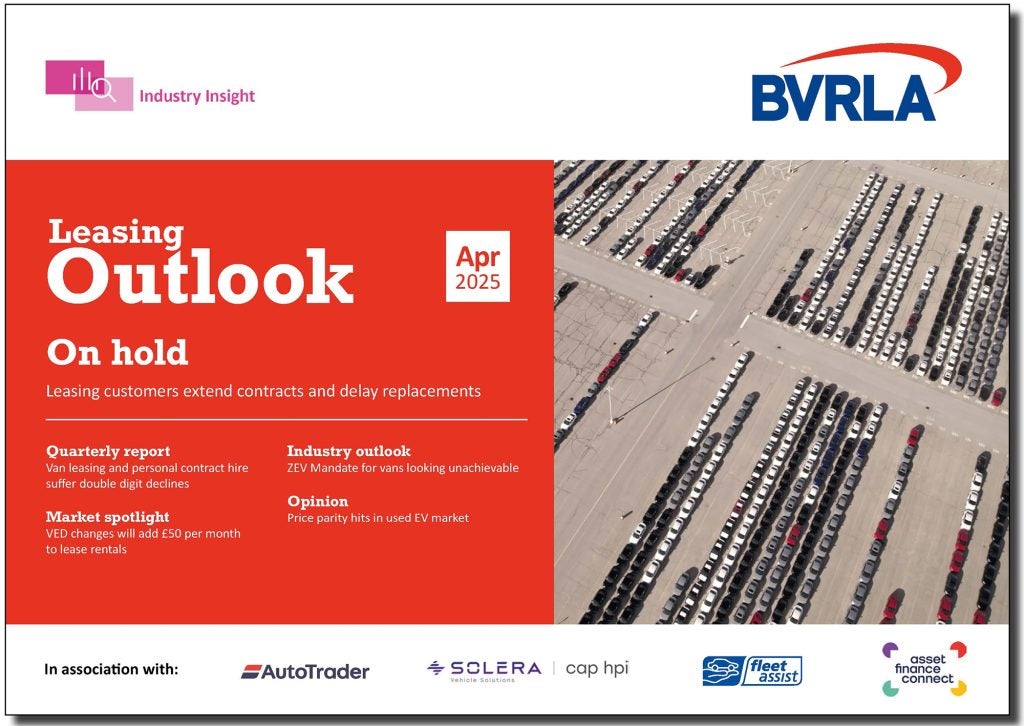With the eurozone in a continuing state of emergency, Richard Brown samples industry attitudes to how this might impact finance on the continent and UK car funding.
By varying degrees of scandal and fear from detractors and supporters the eurozone has been reported to be on the brink of implosion since the credit crisis of 2008.
Never more so than the past few months when Greece looked to be sliding out of the monetary union on the back of public cuts, rioting and electoral turmoil.
The great fear was that, should Greece leave the euro and default on its debts, banks throughout Europe would be left billions out of pocket. On its own the knock-on effect would either depending on which speculator you believe cripple an individual bank, cripple an individual nations banks, or cripple the continents banking system, taking retail and wholesale finance operations with it. Add to that fear the new spectre of Spanish banks struggling to hold capital and the worst-case scenario would look all the more likely.
At the time of writing, both German and Greek shares have tumbled again, there are flash demonstrations throughout Spain, more bad noise is brewing in European parliaments as confidence ebbs from the coalition government in Athens, and both the Netherlands and Germany have been warned their debt rating may be downgraded.
From a customer perspective, those who use UK banking and finance have recent memories of queues outside Northern Rock and headlines of tax money flooding into the Royal Bank of Scotland. While not tied to the eurozone, we have all learned how shockwaves in financial corridors quickly become trembles in our wallet pockets.
Difficult to predict
Part of the fear is the uncertainty of what may happen next as, much like the banking problems of recent years in the UK, the future appears written by non-financial decision makers and appears only in short-notice newsflashes, which we may only witness and not take part in.
Greg Standing, partner at Wragge & Cos motor finance litigation team, says it is difficult to tell how the bailout of Greece in late June will shape the future of the eurozone.
The crisis appears to be more about politics than economics, and its difficult to predict what they will do next, he says.
Pascal Martinez, leasing and credit sales manager at Linedata, goes further, saying the bailout was not really significant as the content was probably not detailed enough.
Although the bailout provided economic detail, it has met with further political buffers.
Some governments have immediately reacted against this plan, and especially about the possibility for the European Stability Mechanism to buyback secondary market bonds where a total agreement is required, even if an 85% majority is allowed in case of emergency."
In short, says Martinez, the currency was weakened and German bonds were reinforced
and we have some doubts about a positive impact of the agreement on the market.
Or, as Harvey Stead, sales director of Close Motor Finance put it at the FLA used car seminar: The thing that keeps us up at night is the unknown in Europe.
So, what would an earthquake, big or small, in the 17 nations that trade and bank in the euro, mean for motor finance in the UK?
An open question
Many captive finance houses, of course, are part of European manufacturing groups. Going by industry estimates, 80% of finance sales in the UK are now supported by manufacturer captive schemes.
According to figures from the Society of Motor Manufacturers and Traders, 684,321 new cars registered this year, January to June, were from brands either owned by a parent based in a nation using the euro, or were at least part of a finance operation run by one. Thats 64.7% of the new market in the UK waiting for the next tremor in the euro currency. Or, around 35% (684,321
cars, multiplied by the latest Finance & Leasing Association (FLA) figure of 67.4% finance penetration, multiplied by 80%) of the new market directly dependent on a finance company that pays staff at head office in euros.
As Karen Wagstaffe, director of training and compliance at Finance Cover Compliance, considers, we may not think we are affected but, ultimately, I am sure marques in those countries most affected will be facing an even tougher time of it than others perhaps not affected as much. I wonder how this will affect the appetite of some of the EU lending institutions for the UK market?
This month, Frank Witter, chief executive of Volkswagen Financial Services (VWFS) announced the company was considering the potential of Greece leaving the euro.
Witter told Automobilwoche magazine VWFS did not expect a Greek exit to mean the end of the euro, but said the company had planned for increased risk and market volatility, should the country leave the currency.
We clearly expect that the euro will continue, said Witter. Whether or not all current member states will stick with it is an open question.
If Greece were to quit, this would not necessarily be the end of the euro What, unfortunately, no-one can reliably gauge are the effects and the speculation on consequences that would follow.
While Witter considers the bigger picture from the frontline, Alistair Scullion, managing director of Experian Automotive, provides the perspective of working with, but not as part of, eurozone motor financers: Our clients in the automotive sector are facing challenging trading conditions. Car buyers are more focussed on affordability and value as the rising cost of living squeezes household budgets.
Similarly, Martinez says Linedata customers drawn from banks, financial and leasing companies and financial institutions are under pressure from all sides. They are facing some liquidity and risk issues especially when: 1) they are not part of large and stable banking groups, and 2) they are working in countries directly under the spotlight.
They are also facing a particularly difficult situation regarding the risk of default of their existing customers and the little appetite of their company customers to invest.
From his position at the head of the vehicle-focused arm of a global information services group operating in several major European markets, Scullion points out the frustrations in funding on the continent: Car dealers and manufactures still want to grow and are honing their business strategies accordingly. The efficient and accurate provision of finance is vital for helping them to do so.
The general economic confidence is low, adds Martinez. As a consequence, investment
projects are postponed or stopped.
A firm base
Addressing the UK, Scullion points out the car market has had to adjust to challenging
economic conditions for some time now.
We have seen how UK car dealers have become more expert at managing risk whilst continuing to maximise profitable opportunities despite tougher trading conditions.
It is clear that the availability of finance remains a vital ingredient for the UK car market and this provides a great opportunity for motor finance providers.
The best possible result for the UK, says Standing, would be Structural reform in the eurozone allowing a firm base point for recovery so that economic confidence returns and people start buying cars again.
However, Scullion adds a caveat to any optimism: The challenge is how to continue
lending whilst balancing consumers levels of affordability and indebtedness in order to minimise the risk of their lending activities. Getting this balance is key.
A deep and sustainable crisis
The threat of a Greek exit appeared to dissipated following the election of a centreright prime minister to accept the bailout and continued austerity measures, but previous assistance has not steadied the Greek economy on a long-term basis and there are worries again about the capability of the Antonis Samaras administration.
Greece is in a deep and sustainable crisis, says Martinez. All countries and banks having some interest in Greek companies are already prepared for the exit of Greece from the eurozone. If Greece goes out, Greece wont return.
I dont see this scenario happening and more bailouts will be agreed before we can reach this scenario. However, such a scenario will affect confidence which is key for companies using leasing contracts to support their investments.
Again, depending on which news report you digest, if not Greece, an exit from the euro stalks vulnerable nations from Portugal to Spain to Italy in the bleakest assessment of the currency.
The eurozone could not survive all three exiting, says Standing. That is not an option for the eurozone elite.
Martinez agrees it will probably never happen… This would be a major drama and all Europe would sink into recession.
Again, it is hesitancy in Europe prompting intransigence in the UK car market and, again, as Stead told delegates: The euro demise makes the credit crisis seem warm and fluffy People are sitting tight and will do so for four or five months.
Standing is blunter: Economic confidence will not return until political confidence returns.
Global car and finance markets cannot stand still, however. As sterling declines against the euro there is less profit to be had in selling cars in the UK but increasing production outside the eurozone would mean companies could mitigate shocks, according to Mark Norman, operational development manager at CAP, at the FLA seminar.
Nobody knows what will happen between now and 2013, said Norman, but German carmakers must be having nightmares over a euro break-up and resulting non-competitive manufacturing of the Volkswagen, BMW and Daimler groups.
Conversely, coming to the aid of Germany is a potentially very positive Greek exit, says Standing. If Greece gets thrown out, Germany may be able to broker a deal to unite the remaining members more closely. Once the politics are sorted, the economics will follow.
Martinez likewise believes centralised control of the eurozone economy to be more likely than, for instance, the combined exit of Greece, Spain and Italy. We probably are going slowly in this direction, he says.
Our finance ministers are trying to work in this direction, but are still facing some opposition from some countries for good or bad reasons.
The reality of the crisis is that the eurozone will probably have no other choice in the mid- to long-term."
Similar to economic decisions taken by the US government, under a centralised control,
difficult decisions can be made to end the crisis and give visibility to the investors.
richard.brown@vrlfinancialnews.com







